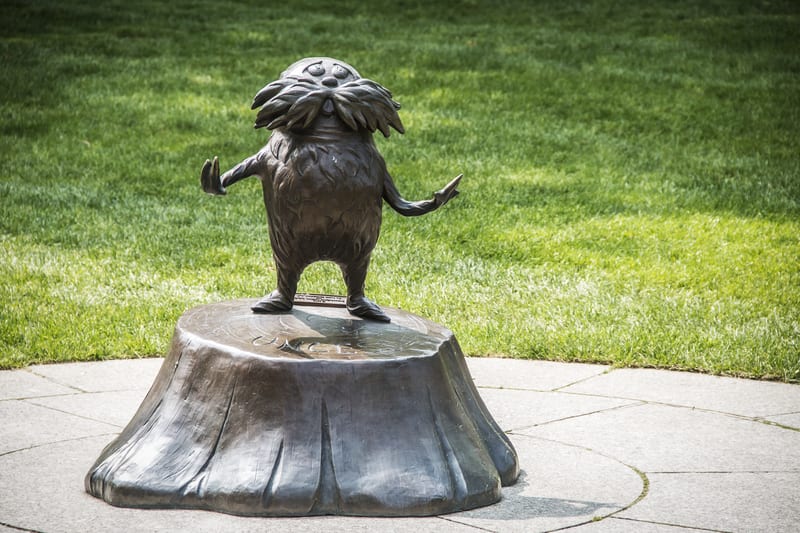Some people like their dogs more than people. Such was the case with Theresa Jablonski, who left her entire estate to a testamentary trust for the benefit of her dog Licorice, created under the terms of her will. In In re Estate of Jablonski, SJC-13397 (Mass. Aug 24, 2023), the Court faced the question of whether the unfortunate passing of Licorice canceled the entire bequest to the testamentary trust.
Does Massachusetts Recognize Pet Trusts?
Yes, Massachusetts recognizes pet trusts, consistent with the modern trend of people liking their pets more than people. In 2011, Massachusetts enacted its law allowing for bequests to pets, as follows:
Section 408. Trust for care of an animal
(a) A trust for the care of animals alive during the settlor’s lifetime shall be valid. Unless the trust instrument provides for an earlier termination, the trust shall terminate upon the death of the animal or, if the trust was created to provide for the care of more than 1 animal alive during the settlor’s lifetime, upon the death of last surviving animal.
(b) Except as otherwise expressly provided in the trust instrument, no portion of the principal or income shall be converted to the use of the trustee, other than reasonable trustee fees and expenses of administration, or to any use other than for the benefit of covered animals.
(c) A court may reduce the amount of property held by the trust if it determines that the amount substantially exceeds the amount required for the intended use and the court finds that there will be no substantial adverse impact in the care, maintenance, health or appearance of the covered animal. The amount of the reduction shall pass as unexpended trust property in accordance with subsection (d).
(d) Upon reduction or termination, the trustee shall transfer the unexpended trust property in the following order:
(1) as directed in the trust instrument;
(2) to the settlor, if living;
(3) if the trust was created in a nonresiduary clause in the transferor’s will or in a codicil to the transferor’s will, under the residuary clause in the transferor’s will or codicil; or
(4) to the settlor’s heirs in accordance with chapter 190B.
(e) If a trustee is not designated by the trust instrument or no designated trustee is willing or able to serve, the court shall name a trustee. The court may order the transfer of the property to another trustee if the transfer is necessary to ensure that the intended use is carried out. The court may also make other orders and determinations as the court deems advisable to carry out the intent of the settlor and the intended use of the trust.
(f) The intended use of the principal or income may be enforced by an individual designated for that purpose in the trust instrument, by the person having custody of an animal for which care is provided by the trust instrument, by a remainder beneficiary or by an individual appointed by the court upon application of an individual or charitable organization.
(g) The settlor or other custodian of an animal for whose benefit a trust was created may transfer custody of the animal to the trustee at or subsequent to the creation of the trust.
(h) Any trust created under this section shall be subject to sections 2–901 to 2–906, inclusive, of chapter 190B, and the common law rule against perpetuities; provided, however, that the life or lives in being shall be measured based on the animal or animals alive at the time of the settlor’s death or when the trust becomes irrevocable. The measuring lives shall be those of the beneficiary animals, not human lives.
What Happens to a Massachusetts Pet Trust if the Pet dies Before the Testator?
The Court explained the terms of the Licorice Trust, as follows:
The trust’s beneficiaries were limited to the decedent’s dog, Licorice, as well as any other pets the decedent may have in her possession at the time of her death. According to the terms of the trust, it was to be funded on the decedent’s death. The trustees, not designated by the trust instrument, were to use the funds of the trust to provide for the “health, care, maintenance, and appearance” of the trust beneficiaries. After the death of all beneficiaries, i.e., Licorice and any other pet who survived the decedent, the trustees then retained the “power and authority to designate a charity to receive the remainder of any and all such funds that shall be in [the trustees’] possession, custody or control.”…
The Court then set forth its understanding of Massachusetts law on the issue of the death of the pet:
Pursuant to the statute’s plain language, “[a] trust for the care of animals alive during the settlor’s lifetime shall be valid.” G. L. c. 203E, § 408 (a). Under the requirements created by § 408, “[u]nless the trust instrument provides for an earlier termination, the trust shall terminate upon the death of the animal or, if the trust was created to provide for the care of more than [one] animal alive during the settlor’s lifetime, upon the death of [the] last surviving animal” (emphasis added).
But here, Licorice died before Ms. Jablonski died, perhaps meaning the trust should never be funded. The Court explained as follows:
The trust was a testamentary trust; and, like any testamentary disposition, the trust only was to be funded and become effective on Theresa’s death, an event that had yet to occur at the time of the trust’s termination….
Therefore, where Licorice predeceased Theresa, the trust provisions in Article V that created the Licorice Testamentary Trust for the benefit of Licorice lapsed. See Hahn vs. Estate of Stange, Tex. Ct. App., No. 04-07-00253-CV (Feb. 13, 2008) (where beneficiary cat predeceased trust settlor, and no other living beneficiary cat could be identified or located, testamentary pet trust failed).
Because the trust lapsed, it falls into the residue, unless the will provides otherwise. See Flannery v. McNamara, 432 Mass. 665, 669 (2000) (“it [is] settled law that, when a beneficiary predeceases the testator, the legacy lapses and falls into residue if there is one; otherwise it must pass as intestate property”). See also Sutherland v. Flaherty, 1 Mass.App.Ct. 388, 389-390 (1973) (“It is well settled that if a legatee not a relation of the testator predeceases a testator, the legacy lapses unless the will provides otherwise” [emphasis added]); G. L. c. 190B, § 2604 (“a devise, other than a residuary devise, that fails for any reason becomes a part of the residue” [emphasis added]).
If the Lifetime Beneficiary of the Trust Predeceases the Testator, Does the Trust Remainder Bequest Fail?
Whether the trust should be funded even though Licorice was already dead was not clear. As explained by the Court:
[t]he decedent’s will does not demonstrate a “clear intent” that the charitable remainder be awarded to the yet-to- be-named charity in the event Licorice were to predecease the decedent. While the failure to name a charity does not by itself invalidate the charitable remainder, see G. L. c. 203E, § 405 (b), such failure at least creates ambiguity whether the decedent wanted the remainder to go to charity or, alternatively, her primary concern was the well-being of Licorice following her death. See Flannery, 432 Mass. at 668 (“latent ambiguity emerges when the words of a will appear to be unambiguous on their face, but certain extrinsic facts render their meaning uncertain” [citation omitted]).
Furthermore, while we agree with the motion judge that the possibility that Licorice would predecease Theresa was reasonably foreseeable, the omission of whether the to-be-named charity was to receive the remainder in the event Licorice predeceased the decedent, whether intentional or unintentional, ultimately is a question of fact — one not best suited to be resolved on summary judgment. See White v. White, 322 Mass. 30, 33-34 (1947) (omission in will, whether intentional or unintentional, is question of fact). We disagree with the motion judge’s conclusion that the mere creation of a residuary clause in the will, coupled with the lack of an alternative gift apart from the Article V trust, demonstrates a clear intent from the decedent that the charitable remainder was not conditioned on Licorice’s survival of her.
The Court also noted the circular construction of the estate plan, pushing the result in the direction that Ms. Jablonski’s intention needed to be ascertained through factfinding, not on summary judgment:
Under the express terms of the decedent’s will, any lapsed gifts fall into the residuary of the will.
The residuary of the will, however, leaves all lapsed gifts to a lapsed and invalid trust, as discussed supra. Therefore, in the event there exists no clear intent that the charitable remainder was to be accelerated on Licorice’s failure to survive the decedent, the entire trust lapses into the residue, and the residue also lapses because the residue leaves everything to the invalid Licorice Testamentary Trust. As a result, the gift then will pass as intestate property. See Bray v. Bray, 359 Mass. 439, 441 (1971) (“Where a gift lapses which is itself part of the residue, it must pass as intestate property”); Crocker v. Crocker, 230 Mass. 478, 482 (1918) (“Where a legacy lapses which is a part of the residue it cannot fall again into the residue. It must pass as intestate property”).








